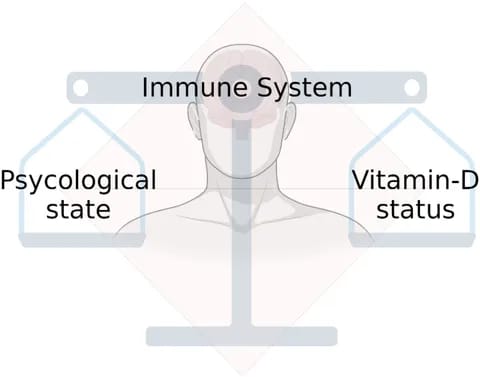By Meshal A. Alobaid et al.
Source Frontiers
Introduction: The global SARS-CoV-2 pandemic significantly altered lifestyles, access to healthcare, and social interactions, introducing unprecedented physical and psychological stress all over the world. This study explores the relationship between psychological stress, vitamin D (Vit-D) levels, and autoimmune connective tissue diseases, including systemic lupus erythematosus, systemic sclerosis, polymyositis, dermatomyositis, and rheumatoid arthritis.
Methods: The analysis was based on over one million patient data points derived from anti-nuclear antibody (ANA) testing conducted both before and during the COVID-19 pandemic 2017-2021. In a subset of patients, longitudinal data were collected bi-yearly to yearly over 5-8 years using the same three-month criteria. The dataset was analyzed using GraphPad Prism9 using paired t-tests or ordinary one-way ANOVA with a significance threshold of p < 0.05 to ensure robust correlations between the variables.
Results: Data indicated that Vit-D levels peaked between 2017 and 2019 before declining, while ANA data demonstrated a rise in autoimmune connective tissue disease cases during the pandemic, reaching a peak in 2021. A clear correlation was observed, with autoimmune disease incidence increasing as Vit-D levels decreased. In-depth case analysis revealed that declining Vit-D levels preceded higher ANA titers and increased autoimmune disease severity, whereas improvements in Vit-D levels were associated with reduced ANA titers and less severe disease manifestations.
Conclusions: The findings suggest that maintaining mental health and ensuring adequate Vit-D supplementation could be essential strategies for mitigating autoimmune disease risks and maintaining immune stability, particularly in pandemic scenarios. Clinically, these results underscore the need for early interventions targeting both psychological well-being and Vit-D levels to reduce the burden of autoimmune diseases.
Read more click here

